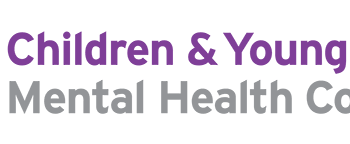Mental health problems are increasing among children and young people. It is currently estimated that approximately one in six children and young people in England aged 6 to 16 are experiencing a mental health problem, rising from one in nine in 2017.
Despite this sharp increase, too many young people struggle to access timely and appropriate support. Centre for Mental Health’s recent analysis also suggests the pandemic is taking its toll and is likely to contribute to 1.5 million children and young people under the age of 18 needing new or increased mental health support, unless there is an urgent response.
Children and young people’s mental health services have historically been underfunded. This helps explain some of the challenges we see across the system today. For example, in 2018, less than 1% of the total NHS budget was spent on specialist children and young people’s mental health services. We’ve known for some time that most adult mental health problems first emerge in childhood and adolescence, so why is there a continued lack of adequate funding set aside to intervene during this critical period?
Today, we have published our latest report, Time for Action, which examines policy and spending across the mental health system for all those aged 0 to 25. We are calling on the government to take a much more ambitious approach to ensure there is a well-funded and resourced system in place.
A Fragmented System

Credit: Sinitta Leunen / Unsplash
Infants’, children’s and young people’s mental health services are commissioned and delivered by a range of agencies, including the NHS, local authorities, education providers and the voluntary and community sector, among others. While in theory, this should enable multiple entry points to support, the reality is much more complex. Too often, we hear from young people, their families, and professionals that the system is too hard to navigate and many feel they have no choice but to give up.
Fragmented commissioning arrangements also mean that it can be difficult to establish overall accountability and responsibility for the delivery of support and care, particularly in areas such as mental health promotion, prevention and early intervention.
The United Nations Convention on the Rights of the Child (UNCRC) makes it clear that all children have the right to access good quality healthcare (Article 24), including when it comes to their mental health. Access to support should be a seamless experience, but sadly, for too many, that’s simply not the case.
Severe Underinvestment In Children’s Mental Health Services

Credit: Umit Bulut / Unsplash
For decades, children’s and young people’s mental health services have been described as the ‘Cinderella of Cinderella services’ as they continue to receive a woeful share of funding. In 2015, a landmark settlement of £1.4 billion was earmarked to transform the system, but a 2018 review by the National Audit Office highlighted the fact that the government never fully costed what was needed to deliver on its aspirations, which has hampered progress.
Three years after that review, we still don’t have a comprehensive overview of where funding is going and what outcomes are achieved. Our latest analysis is an attempt at doing just that, bringing together available evidence.
Unless we make serious commitments to boost funding for children’s and young people’s mental health support, the consequences for their right to healthcare will be serious and long-lasting.
The latest data suggests that NHS spending per capita on children’s and young people’s mental health support is less than half that of adults – approximately £92 per young person, compared with £225 per adult. While there is a higher prevalence of mental health problems among adults, this does not sufficiently explain or justify such a huge variance. The research also suggests there is a postcode lottery, with some areas spending more than others. For example, spending per child ranges from £14 to £191 and this correlates with differences in both provision and outcomes. Perhaps unsurprisingly, lower spending equates to fewer services and poorer outcomes.
The lack of spending on early intervention services is even more troubling. For instance, local public health services provide vital universal support through health visiting teams to infants and their parents. But, between 2016 and 2020, Public Health expenditure on 0–5 year-olds fell by 20%. While the additional £79m announced to expand the roll-out of Mental Health Support Teams (MHSTs) in schools by April 2023 is welcome, funding beyond that point is yet to be confirmed and means that most children and young people will still not benefit from it.
Priorities For Spending

Credit: Papaioannou Kostas / Unsplash
As children’s mental health was invisible in the 2021 Spending Review, it is clear a much more strategic and sustainable approach is required to drive investment in this crucial area. To enable this, the Government should establish a new Mental Health Investment Strategy which builds on previous commitments, such as those outlined in the 2019 NHS Long Term Plan.
The shift towards Integrated Care Systems – new local partnerships between health and care agencies – also presents a crucial opportunity to improve and expand access to mental health care for all 0-25 year olds.
Unless we make serious commitments to boost funding for children’s and young people’s mental health support, the consequences for their right to healthcare will be serious and long-lasting.
The views expressed in this article are those of the author and do not necessarily reflect the views of EachOther.











